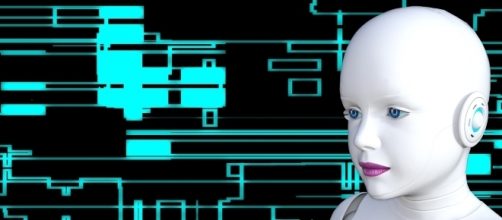Although he is softening his rhetoric somewhat lately, President-Elect trump keeps saying no one can possibly know who hacked what computer and even said “I know a lot about hacking.” That's simply not true but as with any science it isn't easy to explain to a lay person just how scientists (including computer scientists) can know things lay people don't grasp.
Computer complexity
In reality understanding advanced computer science is no easier than understanding quantum entanglement - people tend to think it is because they use computers all the time but don't travel through wormholes on a daily basis.
For example, while most 8th graders know that 11111100001 is just 2017 written in binary instead of decimal, if you don’t understand the math behind RSA trapdoor encryption, or that there are probably 30 good comparison sorting algorithms and as many non-comparison sorts, you aren't even a beginner.
Advanced hacking is difficult as is tracking hackers, but lots of things are difficult and experts can even tell just how much computing power/resources are required to perform some kinds of hacks.
Novices who think it is impossible to follow a hacker’s trail know just enough about computer science and hacking to be dangerous if let loose in an IT department. I doubt any of them have even completed the free edX CS50 course from Harvard.
They've seen TV shows where a computer is hidden and think this is the only method of tracking a hacker. That's easy and requires no CS knowledge - just download the TOR browser and you can do it too. A click of the mouse and your computer seems to jump from country to country.
Tracking people
Experts can guess your location based on combination of monitor size, processor type, ping times (network latency), OS, router, and comparing when something happened with who was accessing the Web at that time. It is possible to share information secretly but that's different.
The 400 pound couch potato myth
Although a lone hacker with a laptop can do a lot of damage and can even break into many company databases, doing so leaves a bold trail.
That sort of hacking is mainly based on guessing router or Wi-Fi passwords or exploiting known server flaws.
Lists of the common passwords are similar every year: "password, 12345, 123456, etc."
But a lot of people need to know passwords and taping them to the bottom of a desk drawer is second only to emailing yourself the new password.
One easy way to hack a system is to get someone to open an email which plants a keystroke monitor in the system. You can track those hackers by seeing where the files are sent.
Sophisticated hacks
The really sophisticated hacks can only be described in mathematical terms just as basic science can only be discussed using mathematics (all physicists are also mathematicians) and some hacks are only possible using super computers.
Advanced hacking tools
But that’s where tracking hackers becomes possible - those tools are so complex that people always use the only ones they are familiar with in part because they think in their native language.
Hackers, like all artists, perfect skills over decades.
You see the same thing in other fields such as counterfeiting, and even robberies - hence the files police keep on modus operandi (mode of operation.)
The average person doesn't see this any more than they can determine if Da Vinci or Van Gogh created a certain painting, or if it was a forgery. But art experts can identify a specific artist (or faker) just by looking at brush strokes.
Ignorance
In any advanced technical or scientific field it’s a truism that "Ignorance isn't bliss; it's just ignorance." There are various levels of ignorance when it comes to very complex subjects but the most dangerous is that mid-level where you think you understand much more than you really do. That's where someone tried to make things "simple" and you never realized it was grade school knowledge.
President Trump will NEVER have all the facts but he'll still have to make decisions.

